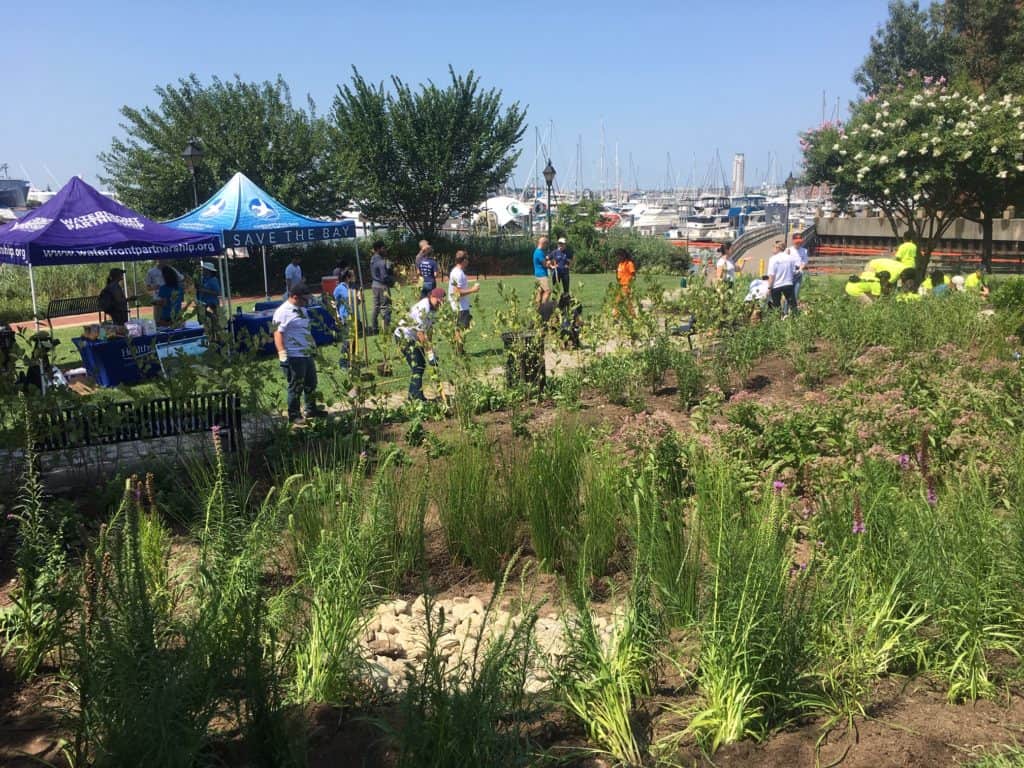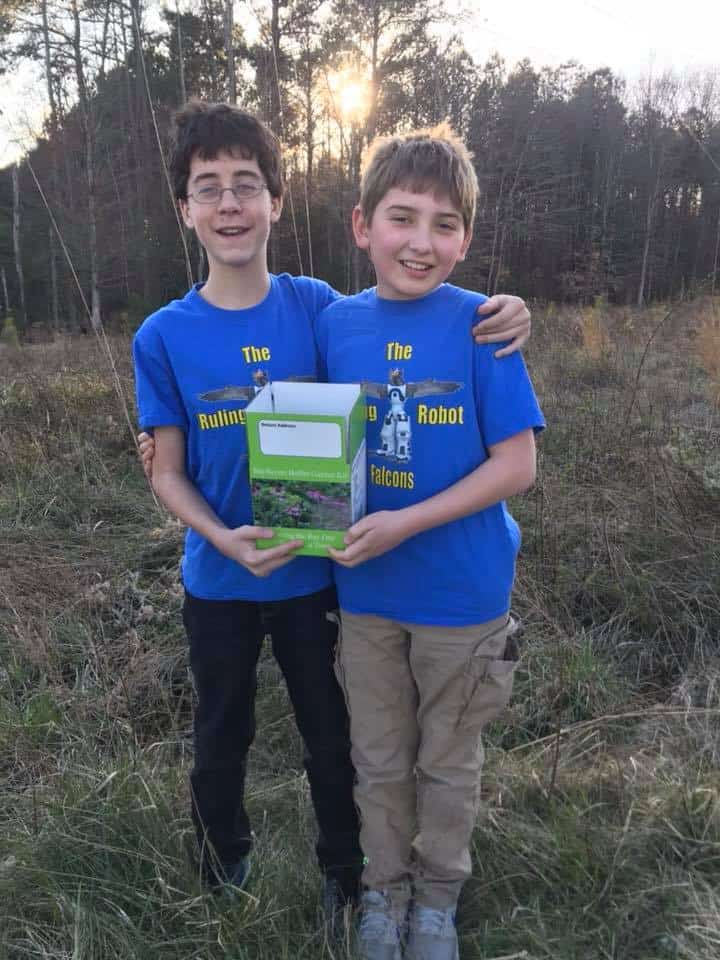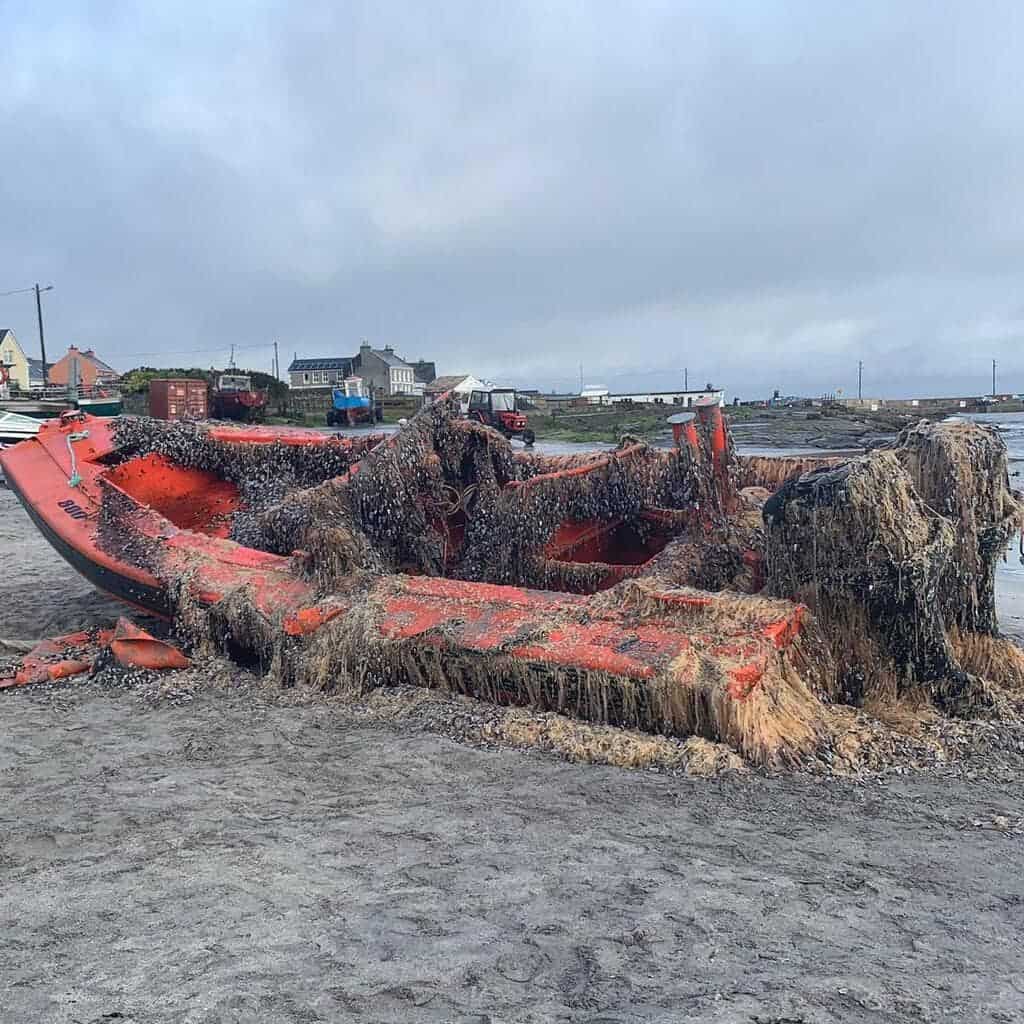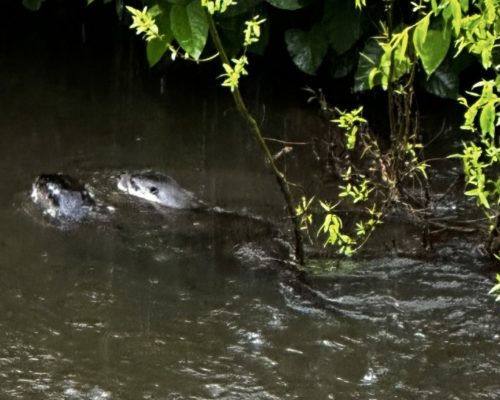Professor Trash Wheel, one of Baltimore’s googly-eyed, trash-scooping water wheels, is getting some company on the southeast side of the harbor.
860 lush, native plants are now living at the Harris Creek outfall, along busy Boston Street in the Canton neighborhood. Two just-installed rain gardens are designed to stop over 6,000 square feet of runoff pollution from Boston Street, before it gets into the water.
The Waterfront Partnership’s Healthy Harbor Initiative worked with the Baltimore Department of Public Works (DPW) and other partners on the project, and hardy volunteers from Constellation Energy helped with the manual labor.
Truckloads of water- and pollution-tolerant plants like swamp milkweed and black-eyed susans went into the ground, along with rocks landscaped to catch water.
Healthy Harbor Director Adam Lindquist explains that the rain gardens work in two ways: First, with holes drilled in the sidewalk, polluted rainwater will flow into the garden, instead of into storm drains (and ultimately, the Bay). Second, once the nutrient-polluted water soaks into the garden’s soil, those nutrients will actually help the plants to flourish.
The project is placed right where Harris Creek, a stream hidden underground on the city’s east side, empties into the harbor. The creek runs under 17 city neighborhoods, from Clifton Park to Canton. The rain gardens are considered “phase two” of a vision for a Harris Creek eco-park. Professor Trash Wheel was phase one, and there are future plans for a phase three shoreline restoration.
Mark Cameron, who heads up the DPW Watershed Planning & Partnership Section, says the rain garden is funded entirely by city taxpayers through the stormwater fee nicknamed the “rain tax.” The Chesapeake Bay Trust administered almost $100,000 in funds through a grant. When Bay Trust grants go to Baltimore projects, Cameron says, many are on public rights of way like the park at Harris Creek.
DPW relies on groups like Healthy Harbor, the Southeast Community Development Corportation, and Harris Creek Stewards, to help apply city watershed funds where they’re needed most.
Corporate volunteers from Constellation Energy put in some sweat, with shovels in hand and work gloves on. Phil Priolo, Vice President of Commercial Risk, said about 20 volunteers, mostly from the company’s risk organization, came out despite the Baltimore summer sun. Constellation’s parent company, Exelon, has the nation’s largest nuclear fleet, so, Priolo said, its low-carbon operations fit with smaller-scale environmental efforts like the rain gardens.
Now that they’re in, the rain gardens will be maintained by Healthy Harbor and the Chesapeake Bay Foundation.
-Meg Walburn Viviano




